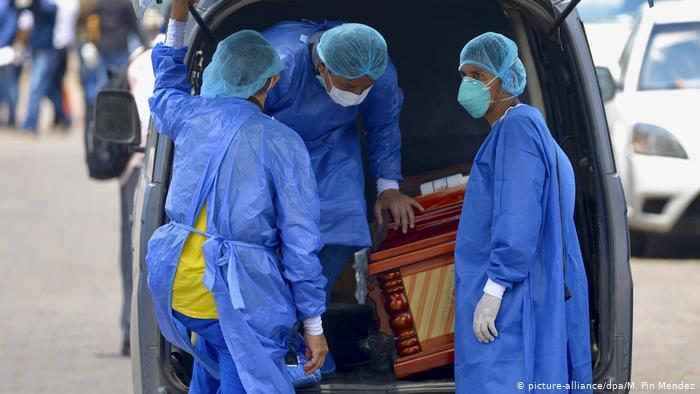
GEF earmarks $204.3 m to help UNDP scale up efforts for climate resilient future
The Global Environment Facility (GEF) has just approved $204.3 million for the United Nations Development ...

The UK committed a total of £744 million to the global fight against coronavirus (COVID-19) after declaring an additional package of £200 million for supporting UK charities and international organizations.
This makes the UK one of the biggest donors to the international response.
The additional package will help reduce mass infections in developing countries which often lack the healthcare systems to track and halt the virus.
Out of the £200 million, 130 million will go to the UN organizations; £65 million for the World Health Organization, £20 million for UNICEF, £20 million for the UN Refugee Agency (UNHCR), £15 million for the World Food Program, and £10 million for the UN Population Fund (UNFPA).
Also, £50 million was allocated to the new International Red Cross and Red Crescent Movement appeals, while .£20 million was earmarked for international NGOs, including UK charities, to tackle the virus.
Health experts have identified the weakness of developing countries’ healthcare systems as one of the biggest risks to the global spread of the virus.
They have also warned that if coronavirus is left to spread in developing countries, this could lead to the virus re-emerging in the UK later in the year and put further pressure on the UK National Health Service (NHS).
The UK funding for the WHO will help provide more accurate assessments of how the pandemic is progressing around the world, allowing support to be targeted where it will save the most lives and stop the outbreak sooner, and helping countries respond to the virus.
UK aid support for the WHO will not only help developing countries but will also benefit the UK through further research into the virus and improved international coordination.
The pandemic is particularly dangerous for countries with weak health systems who are already struggling to fight preventable diseases.
In Yemen, 80 percent of the population are already in need of humanitarian assistance and only about 50 percent of health facilities are operational.
In Asia, Bangladesh hosts 850,000 Rohingya refugees, many in crowded and unsanitary camps where disease could take hold rapidly.
These countries will be hard hit by lockdowns and disruptions to the supply of goods and services. The UK aid will help to mitigate these conditions and support those already living in desperate situations.
The funding will also help developing countries to rapidly identify and care for patients with symptoms in order to limit human-to-human transmission. The UK investment will help install new hand-washing stations and isolation and treatment centers in refugee camps, and increase access to clean water for those living in areas of armed conflict.
International Development Secretary Anne-Marie Trevelyan said “While our brilliant doctors and nurses fight coronavirus at home, we’re deploying British expertise and funding around the world to prevent a second deadly wave reaching the UK.”
“Coronavirus does not respect country borders so our ability to protect the British public will only be effective if we strengthen the healthcare systems of vulnerable developing countries too.”
“Our new UK aid support will help stop the virus from infecting millions of people in the poorest countries, meaning we can end this global pandemic sooner and prevent future waves of infection coming to the UK.”
Pioneering British scientists and researchers like those at Oxford University and at Mologic, based in Bedford, are already at the forefront of the global race to find a coronavirus vaccine and stop its spread, including within the UK.
The UK has already committed £250 million of aid to the Coalition for Epidemic Preparedness Innovations (CEPI) to rapidly develop a coronavirus vaccine, the biggest donation of any country.
Thanks to this investment, future vaccines will be made available at the lowest possible price to the NHS and other countries’ healthcare systems.
The announcement follows the Prime Minister’s call to world leaders to work together to create a vaccine as quickly as possible and make it available to anyone who needs it.
The Global Environment Facility (GEF) has just approved $204.3 million for the United Nations Development ...
The European Bank for Reconstruction and Development (EBRD) is promoting renewable energy and low‑carbon technologies ...
Vodafone Foundation has pledged €30,000 to Save the Children in response to the devastation caused ...


اترك تعليقا